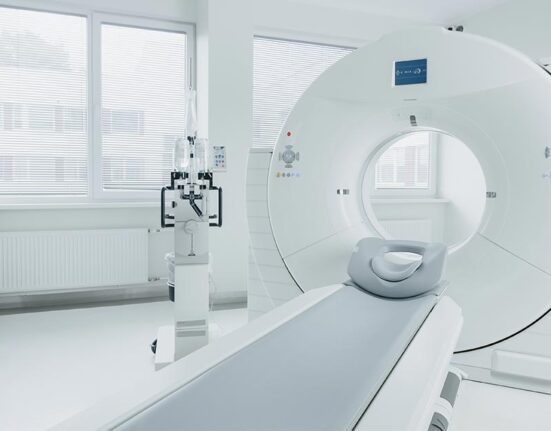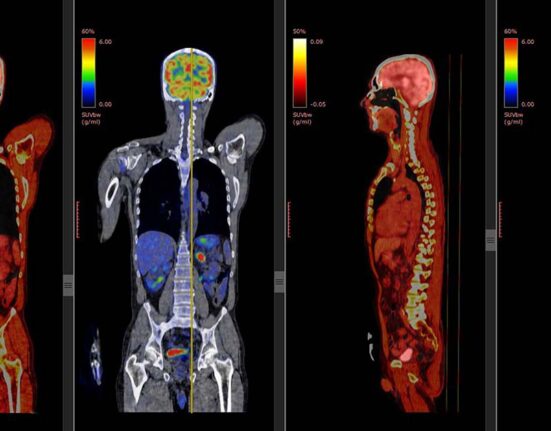Diagnostic imaging scans are often included as part of comprehensive health screening packages. They may include those that emit radiation, such as chest x-rays, mammograms, MRIs, PET Scans, and CT Scans (there is no ionising radiation exposure associated with ultrasounds). Some people may be put off from doing such scans due to their fear of radiation risks from x-rays and these other scans. Is there ground for such concern?
Background On Radiation
In an article about radiation basics, the National Environment Agency explains that:
- Radiation can be non-ionising or ionising radiation, and can be natural or man-made.
- People are exposed to natural background radiation every day.
- Examples of non-ionising radiation include visible light, radio waves and microwaves.
- Examples of ionising radiation include x-rays, cosmic rays and natural radioactive materials in the soil or in food.
- Exposure to high levels of radiation over a short period of time can impact our health.
Radiology information website radiologyinfo.org explains that one of the scientific units of measurement for radiation dose is the millisievert (mSv). An average person (in the U.S.) receives an effective dose of about 3 mSv per year from natural radiation. As such radiation includes cosmic radiation from outer space, people living at higher elevation may be exposed to greater amounts of radiation than those staying at sea-level (e.g. in Singapore).
How Much Radiation Is There From Diagnostic Imaging?
Radiologyinfo.org provides examples of the approximate effective radiation dose and the comparable to natural background radiation for various types of diagnostic imaging. Some common ones include:
| Procedure | Approximate effective radiation dose | Comparable to natural background radiation for: |
| ABDOMINAL REGION | ||
| Computed Tomography (CT)–Abdomen and Pelvis | 7.7 mSv | 2.6 years |
| Computed Tomography (CT)–Colonography | 6 mSv | 2 years |
| Upper GI Study with Barium | 6 mSv | 2 years |
| LUNG | ||
| Computed Tomography (CT)–Lung Cancer Screening | 1.5 mSv | 6 months |
| Chest X-ray | 0.1 mSv | 10 days |
| HEART | ||
| Coronary Computed Tomography Angiography (CTA) | 8.7 mSv | 3 years |
| Cardiac CT for Calcium Scoring | 1.7 mSv | 6 months |
| NUCLEAR MEDICINE | ||
| Positron Emission Tomography–Computed Tomography (PET/CT) Whole body protocol | 22.7 mSv | 7.6 years |
| WOMEN’S HEALTH | ||
| Screening Digital Mammography | 0.21 mSv | 26 days |
| Screening Digital Breast Tomosynthesis (3D Mammogram) | 0.27 mSv | 33 days |
Source: https://www.radiologyinfo.org/en/info/safety-xray
How Much Radiation Exposure Is “Safe”?
A common fear of radiation risk from x-rays and other imaging tests is that the radiation may cause cancer. Cancers associated with exposure to high doses of radiation include leukaemia, breast cancer, stomach and colon cancer, lung cancer, ovarian cancer, among others. It is commonly accepted that any exposure to radiation may increase the chances of cancer. However, the doses of radiation from imaging scan are small, and the chances of them resulting in cancer are accordingly, very low as well. There is however, no consensus as to exactly what level of exposure is “safe”.
Should Fear Of Radiation Risks From X-Rays And Other Imaging Scans Deter You From Taking Them?
The risks from x-rays and other diagnostic imaging scans should be weighed against the benefits of the scans, for instance, in enabling early detection of illnesses and early medical intervention. Serious conditions such as cancer or heart diseases are easier to treat when discovered early, and better treatment outcomes can be more likely. Cancer survival rates for early stage cancer are also better than for late stage cancers.
Consult A Doctor Before Doing Diagnostic Imaging Scans
Healthcare providers will require patients to be seen by a doctor first before imaging scans such as X-rays, CT scans, PET scans, mammograms, etc, can be administered. The doctor will go through with you what tests or scans you require based on your health conditions, and order the appropriate ones.
Our Preferred Doctor For Health Screening
If you are considering your annual health screening, you may wish to learn more about Dr Chua Boon Suan, a healthscreening specialist at AsiaMedic and our Preferred Doctor for health screening.
You may also wish to consider these health screening packages from our partner healthcare providers:
For further inquiries and assistance, you may reach us through the button below:
Protect against cancer, cardiovascular disease, and other chronic diseases with regular health screening. Compare and shop for health screenings from Singapore and regional healthcare providers at a single convenient platform - shop.health365.sg
This article is informative only and is not intended to be a substitute for professional medical advice, diagnosis, or treatment, and should never be relied upon for specific medical advice.











